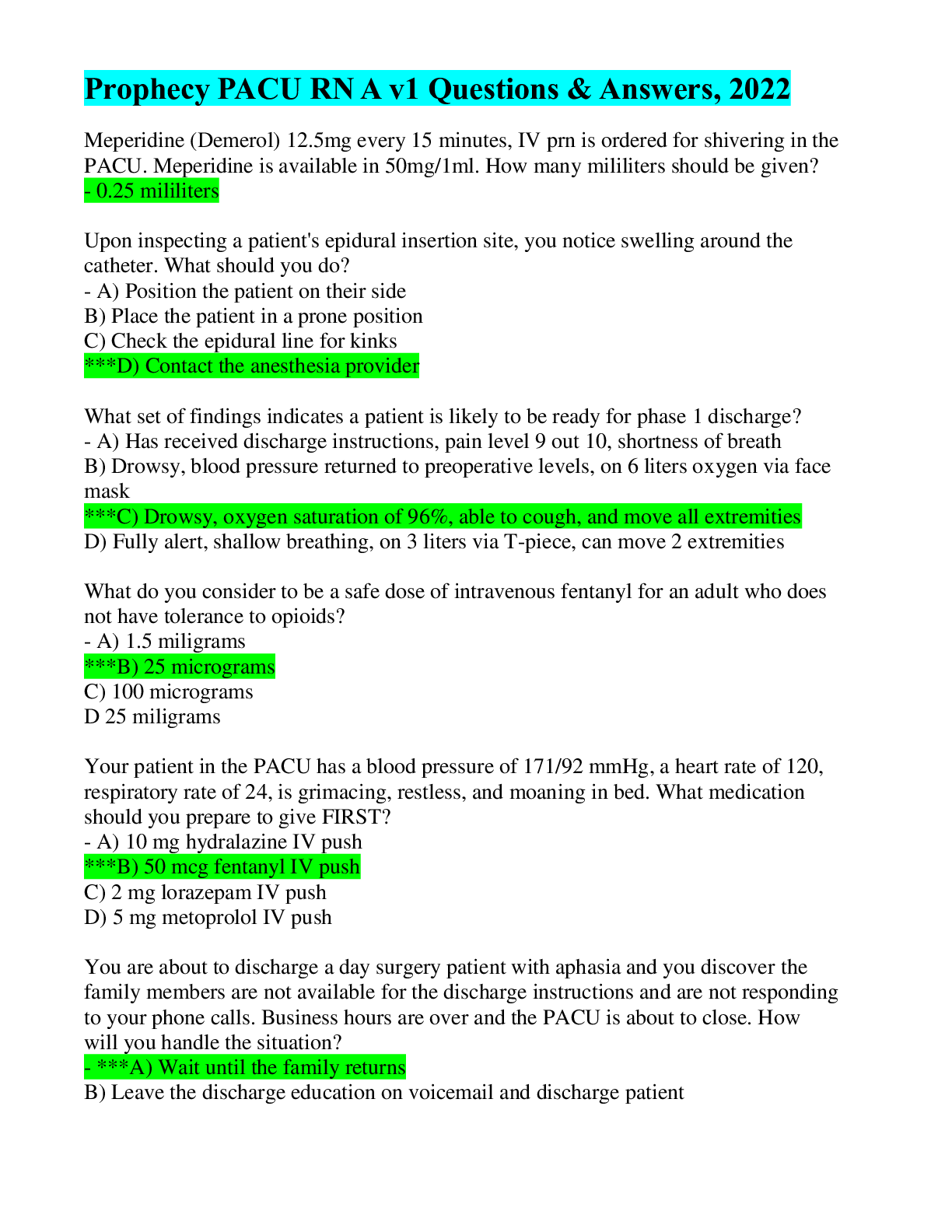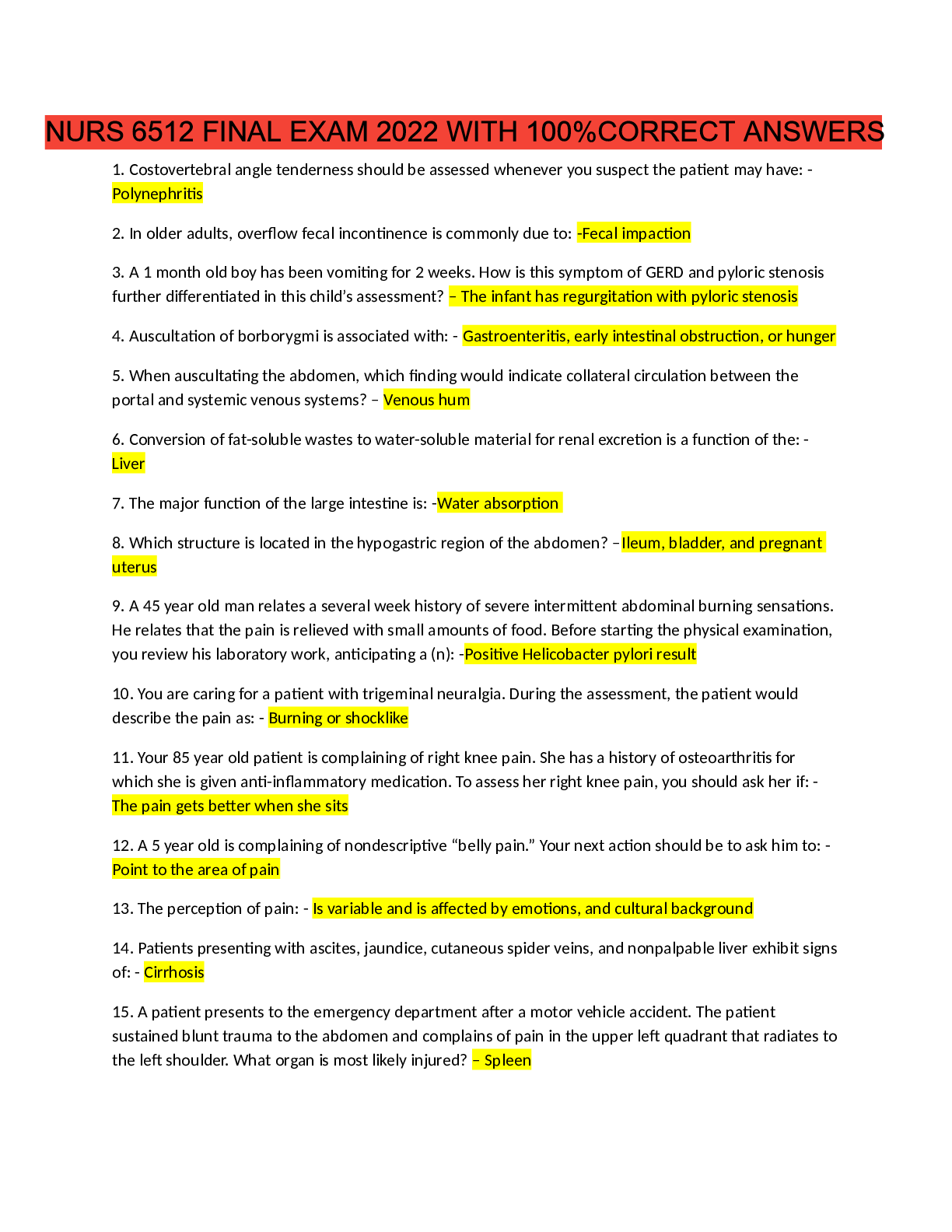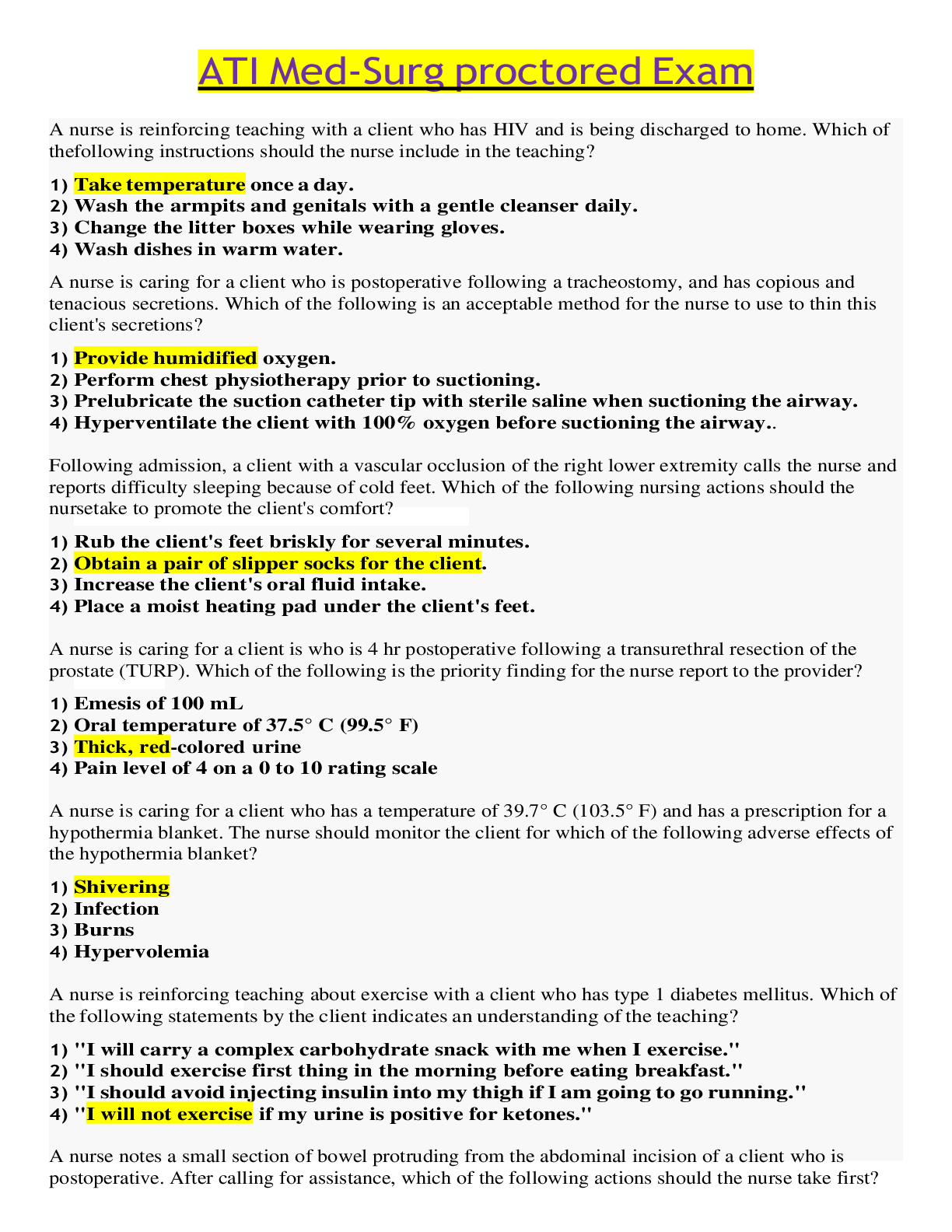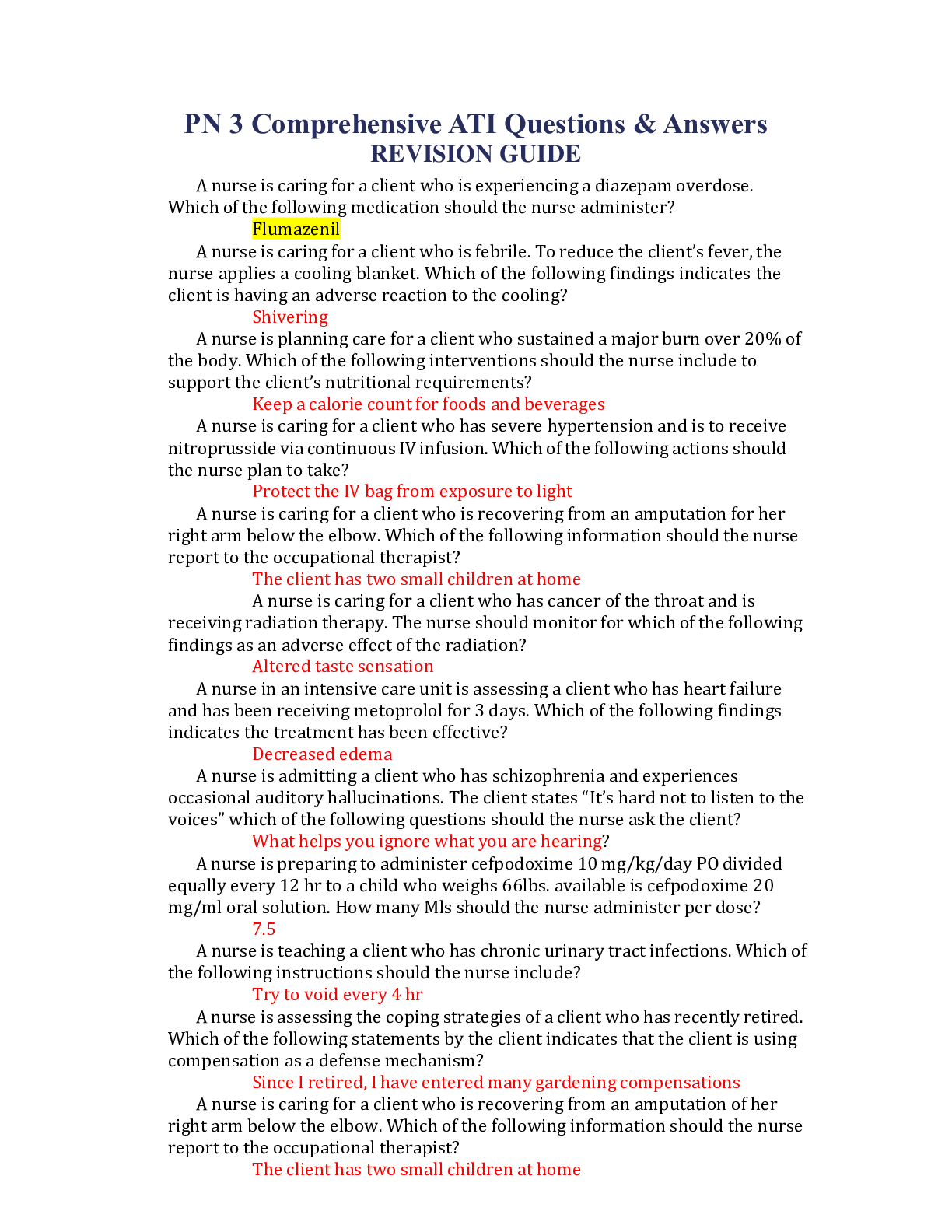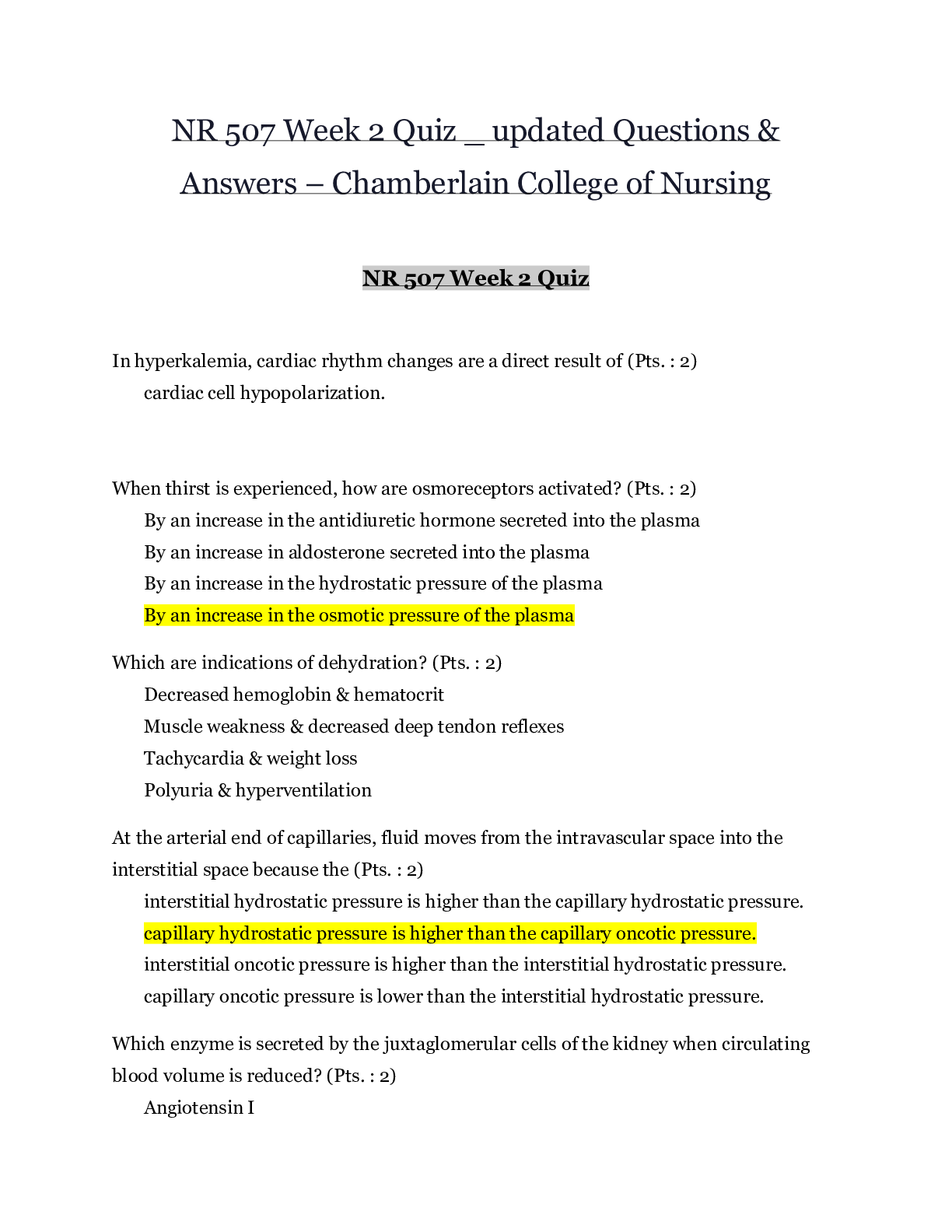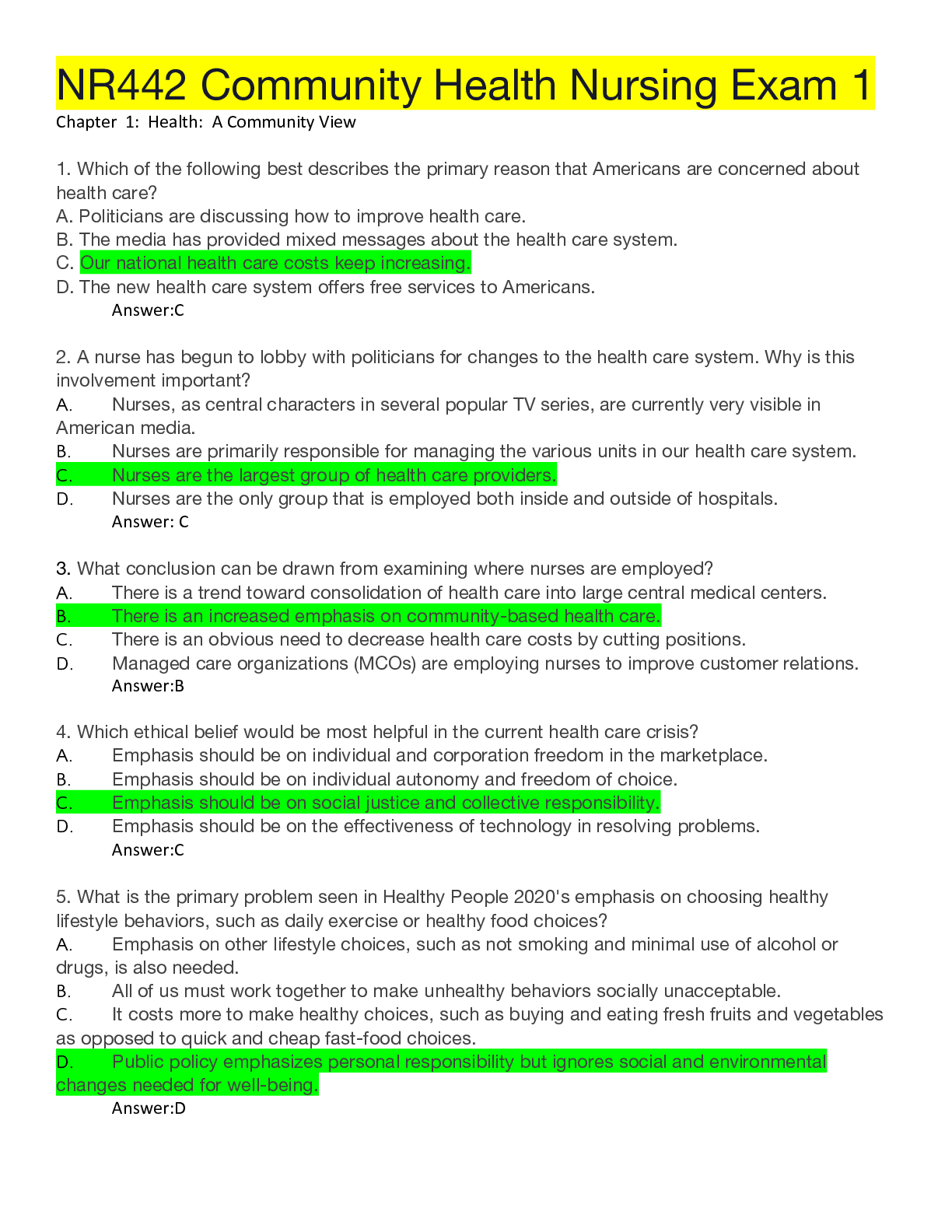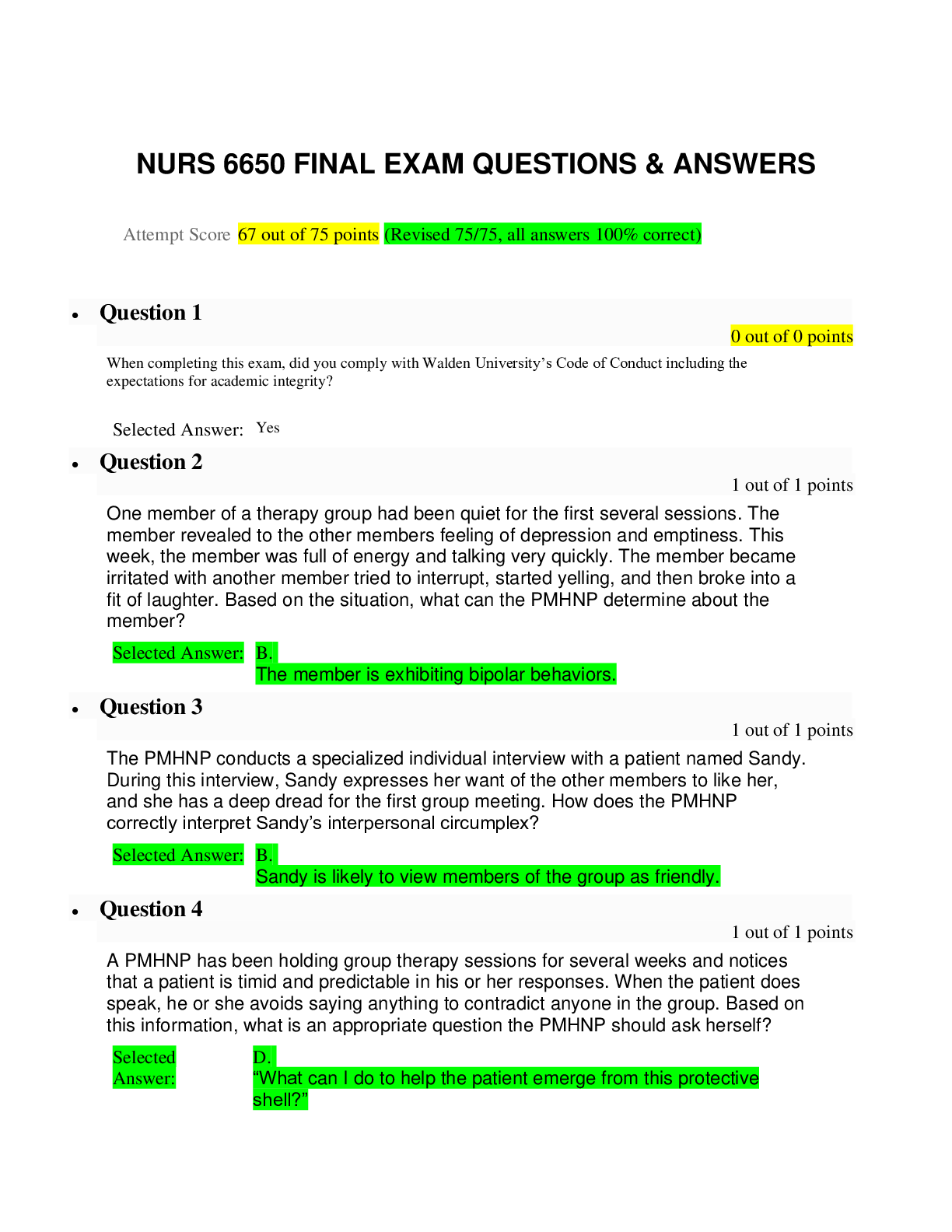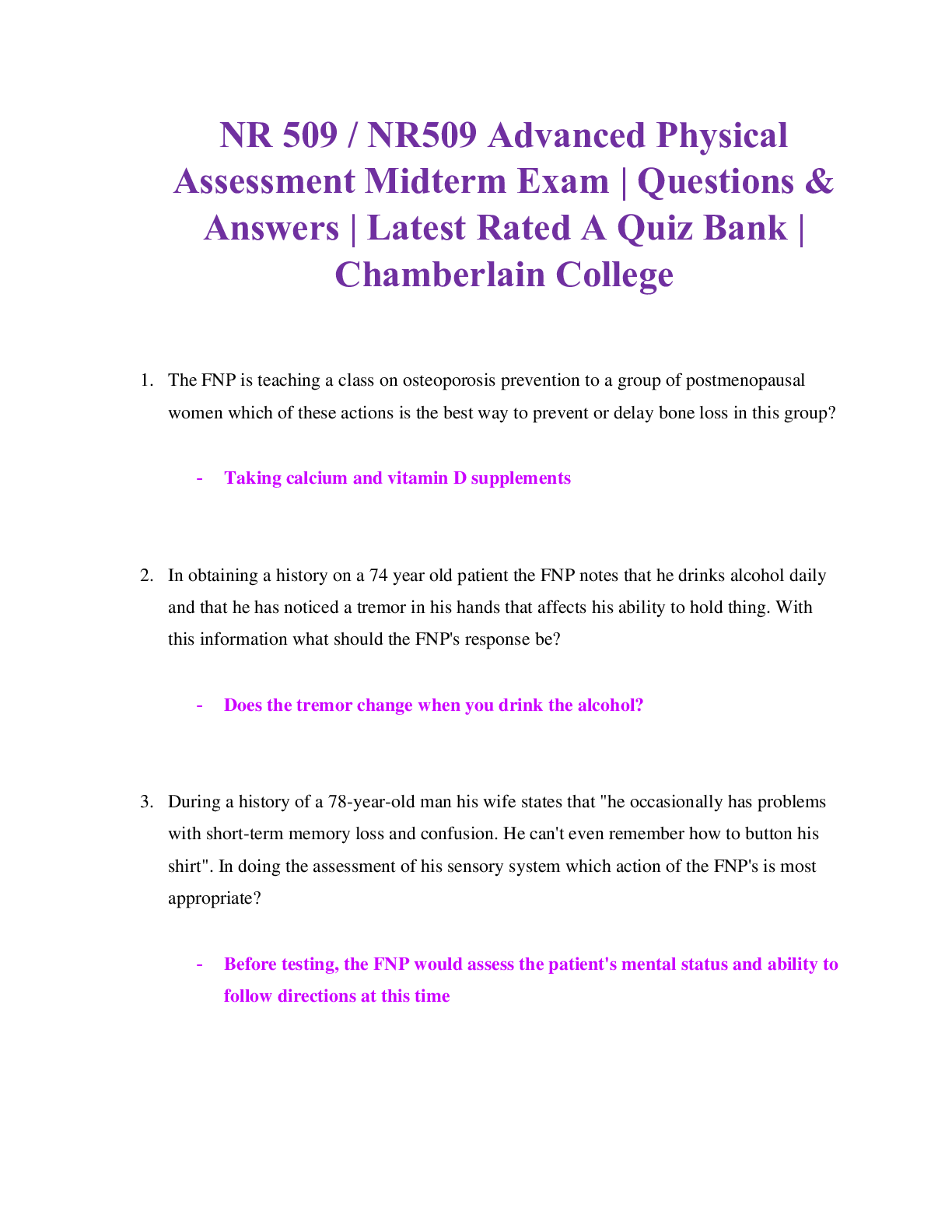Health Care > EXAM > VATI Psychosocial Integrity Quiz ; Questions & Answers ( Graded A) (All)
VATI Psychosocial Integrity Quiz ; Questions & Answers ( Graded A)
Document Content and Description Below
VATI Psychosocial Integrity Quiz ; Questions & Answers ( Graded A) A nurse is assessing the health status of an older adult client. Although the client denies a problem, the caregiver explains that th... e client is alert and oriented but consistently has an unkempt appearance, body odor, and soiled clothing. The nurse understands that the client's behavior is likely related to which of the following? Select one: a. Manifesting typical early symptoms of delirium. b. Experiencing side effects from a medication. c. Restricting activities in response to disease symptoms. d. Exhibiting evidence of asymptomatic pathology. (Ans- c. Restricting activities in response to disease symptoms. Frequently older adults will minimize, deny, or underreport the impact of disease symptoms which require alterations of daily activities in order to compensate for the symptoms. In this case the issue is not one of impaired cognition, but rather the use of the coping mechanism of denial because of the difficulty in preforming self care functions. During an assessment, an adolescent client whispers to the nurse, "I have to tell you something, but you have to promise you won't tell anyone else." Which of the following is the most appropriate response for the nurse to make? Select one: a. "I cannot make that promise if it affects your or someone else's safety." b. "What is said in this room stays in this room." c. "I am bound by the nurse-client relationship to keep your comments private." d. "I feel that you should share this with your parents first." (Ans- a. "I cannot make that promise if it affects your or someone else's safety." Nurses should not promise what they cannot do. If a client admits to behaviors that are dangerous to self or others, the nurse is obligated to report these behaviors. A nurse is caring for a terminally ill client of the Muslim faith and observes the client to be unconscious and having Cheyne-Stokes respirations. The family has repositioned the bed so that the client is on the right side facing toward the wall. The nurse does not question this action because of which of the following? Select one: a. The religious practice of concealing the face of the dying client should be supported. b. This positioning is preferred for a client with respiratory distress. c. This positioning has religious significance for the client and family. d. The nurse should support the family in their efforts to make the client comfortable. (Ans- c. This positioning has religious significance for the client and family. According to Muslim teachings, it may be comforting to the dying client and family to turn the client on the right side to face Mecca. When death occurs, the body must be kept covered at all times, and it is preferred that only healthcare professionals of the same gender touch the body. In this situation, observing the position of the client would indicate that the spiritual needs of the client and family were being met. A nurse is admitting a client diagnosed with posttraumatic stress disorder (PTD) to the mental health unit. The client is confused and disoriented. When developing a plan of care, which of the following would be the priority intervention for this client? Select one: a. Accept and make the client feel safe. b. Explain unit rules to the client. c. Orient the client to the unit. d. Stabilize the client's psychiatric needs. (Ans- a. Accept and make the client feel safe. Clients in a mental health unit need to feel accepted and a client that is confused needs to feel safe. Safety is the client's most basic need, making this the priority intervention. The nurse is assessing the family dynamics of a widow with end stage terminal cancer. Which statement made between the adult children would best indicate the need for further teaching? Select one: a. "It does not matter what we think, the living will says 'do not resuscitate'." b. "Since you are the oldest child, you have the responsibility to decide." c. "If daddy were alive, he would be making these hard decisions, not us." d. "The doctors have told us that it is time for us to make some tough decisions." (Ans- a. "It does not matter what we think, the living will says 'do not resuscitate'." -The DNR in a living will expresses the wishes of the client in a written form preceding the situation it addresses. It may also have additional instructional statements with it that give further guidance for particular situations. In any case, the DNR represents the wished of the client, and does not preclude decisions about care and death by the next of kin. And, despite a DNR wish being expressed in an advance directive it requires a healthcare provider order to put a DNR in effect. A client diagnosed with schizophrenia and experiencing frequent auditory hallucinations is admitted to an inpatient psychiatric unit. Which of the following would be the most effective, initial strategy for the nurse to implement? Select one: a. Agree with the client that the voices are audible. b. Explain to the client that the hallucination is not real. c. Ask the client to rest in a quiet area until the voices are gone. d. Ask the client to describe the components of the hallucination. (Ans- d. Ask the client to describe the components of the hallucination. -Initially, the nurse should try to understand what the voices are saying or telling the client to do. Suicidal or homicidal messages necessitate initiation of safety measures for all members of the healthcare team as well as the client. Once a client describes the hallucination or delusion, do NOT dwell on it. Rather, focus conversation on more reality-based topics. A client expresses to the nurse that her husband is an alcoholic and has trouble keeping a job for longer than three months. Which of the following is the nurse's best response? Select one: a. "Have you tried to contact Al-Anon? I can help if you want." b. "This seems to worry you. May I contact the Hospital Chaplain?" c. "What have you done in the past to help deal with this problem?" d. "I'm so sorry to hear that. Why do you think he drinks?" (Ans- c. "What have you done in the past to help deal with this problem?" -Providing a broad opening allows the client to elaborate and gives the nurse the opportunity to assess problem-solving and coping skills of the client. A nurse is caring for an adolescent client who is recovering from a traumatic below the knee amputation. The day after surgery, the client refuses to look at or touch the affected leg. Which of the following nursing interventions would be most beneficial to this client? Select one: a. Avoid discussing the amputation until the client initiates conversation. b. Remind the client that full mobility is possible once fitted for a prosthesis. c. Insist that the client participate in bathing and examining his affected leg. d. Gently examine and redress the stump without frowning or grimacing. (Ans- d. Gently examine and redress the stump without frowning or grimacing. -Avoidance is a common reaction to a body image change resulting from a disfiguring injury. Adolescents may be especially sensitive to disruption of body image, due to their developmental stage. The most beneficial intervention for this client is for the nurse to show acceptance by caring for the stump without nonverbal behaviors that would indicate disgust at the appearance of the injury. [Show More]
Last updated: 1 year ago
Preview 1 out of 13 pages

Reviews( 0 )
Document information
Connected school, study & course
About the document
Uploaded On
Sep 14, 2022
Number of pages
13
Written in
Additional information
This document has been written for:
Uploaded
Sep 14, 2022
Downloads
0
Views
62
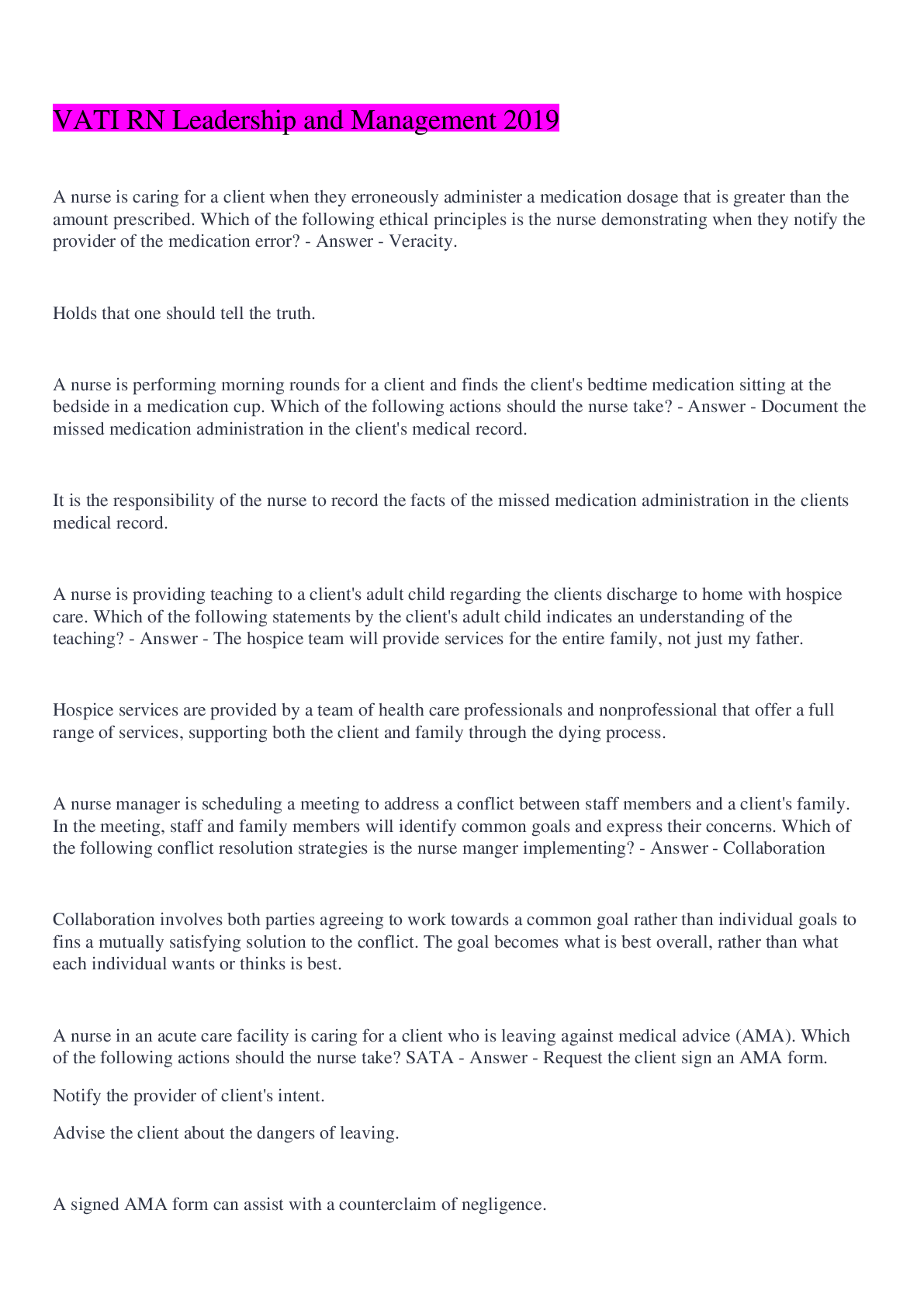

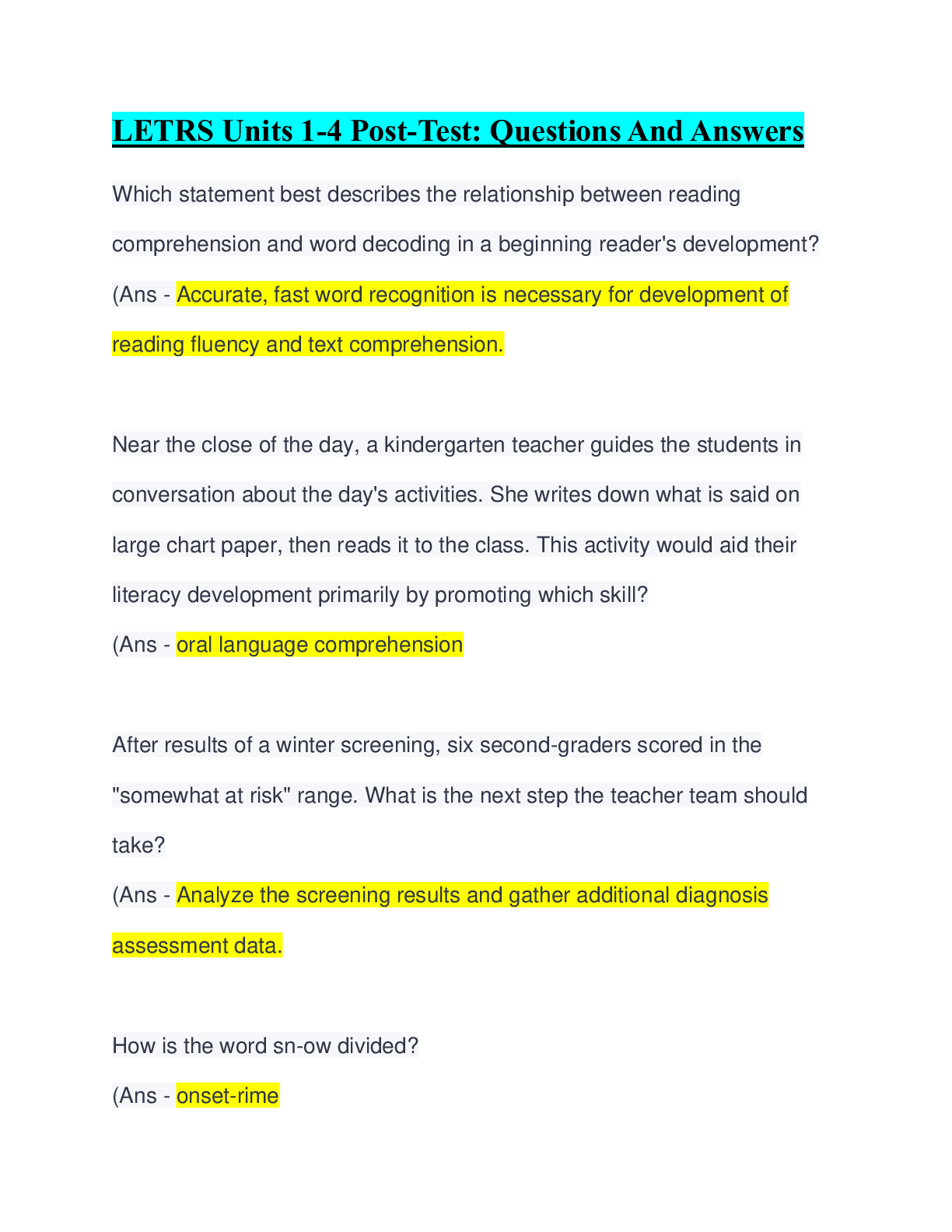
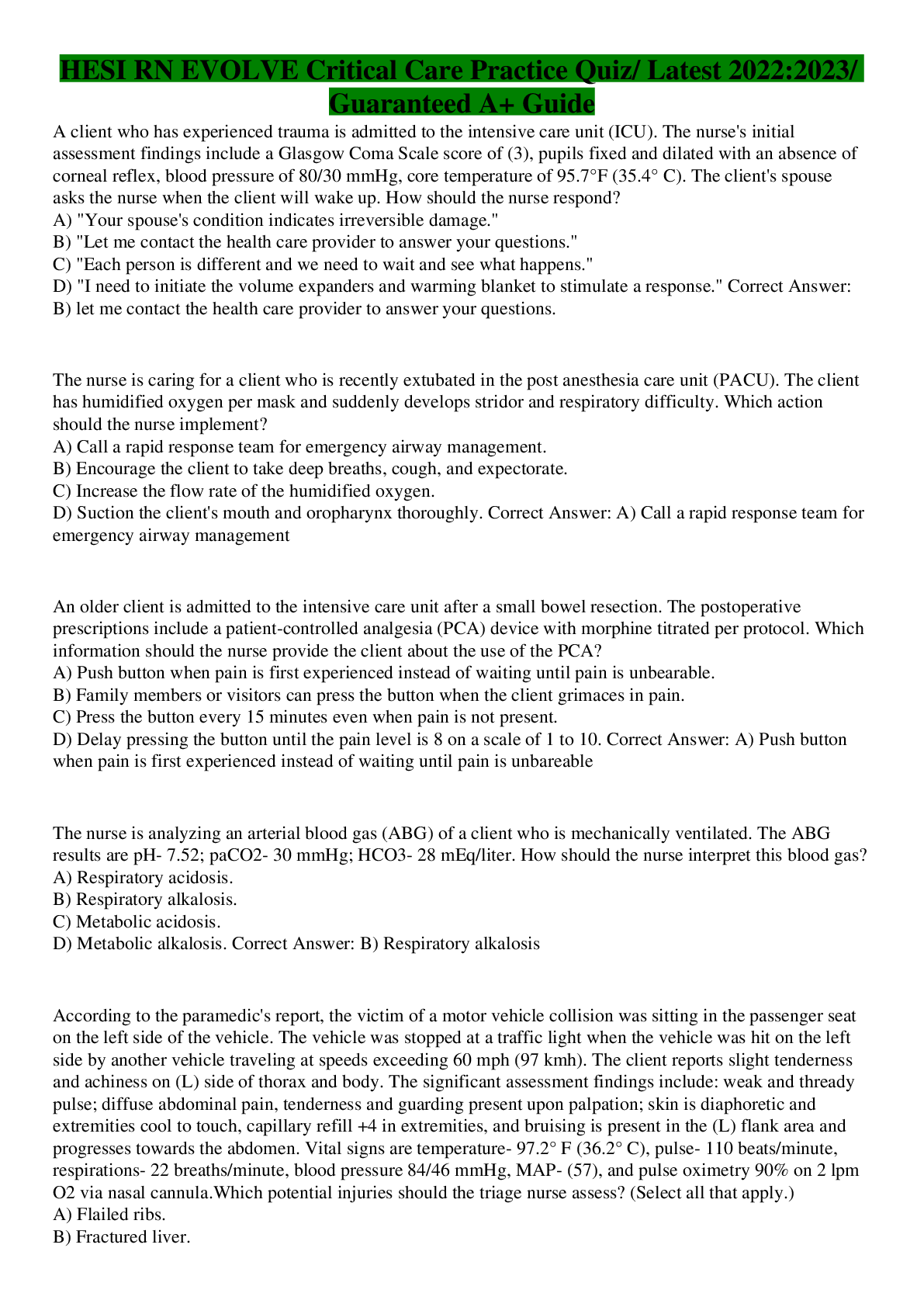
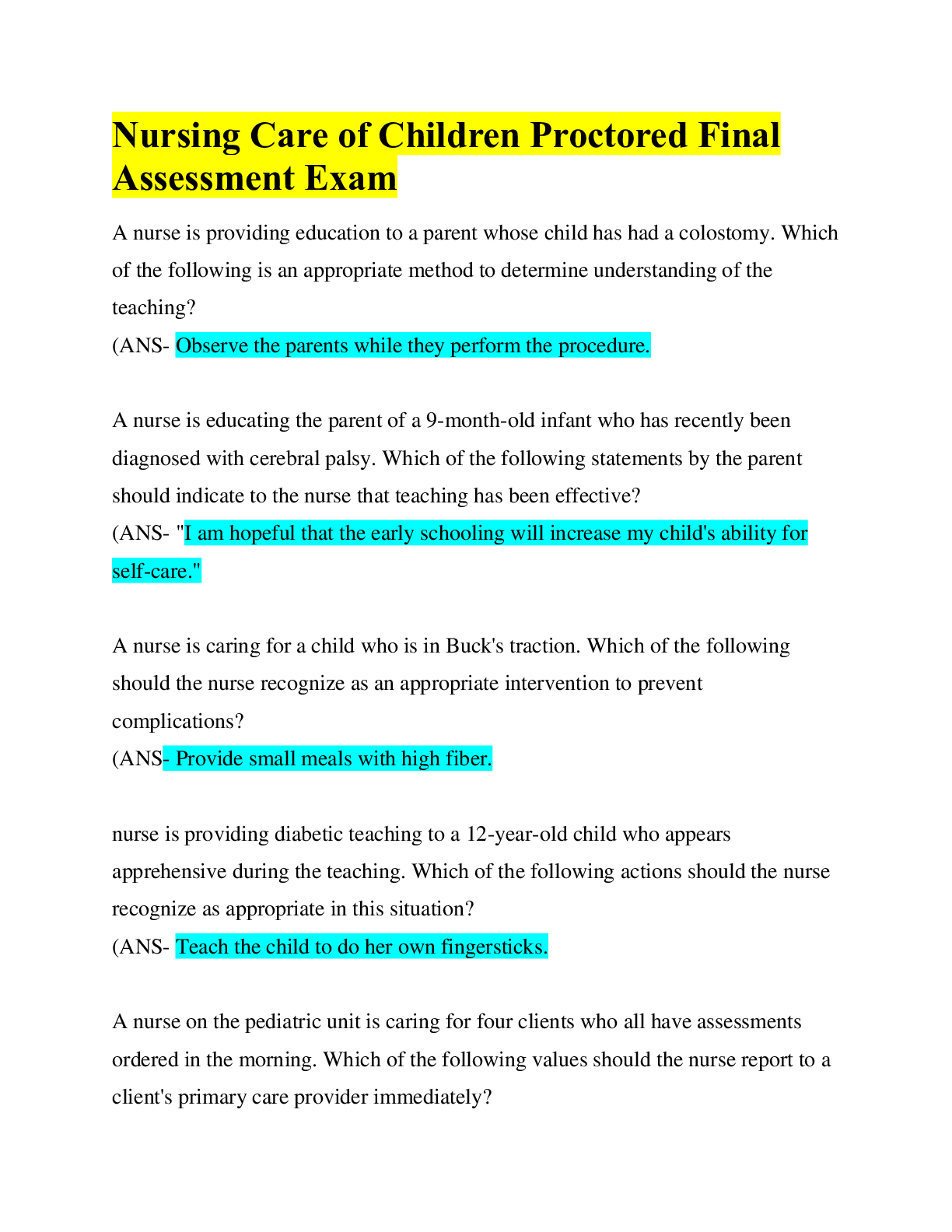
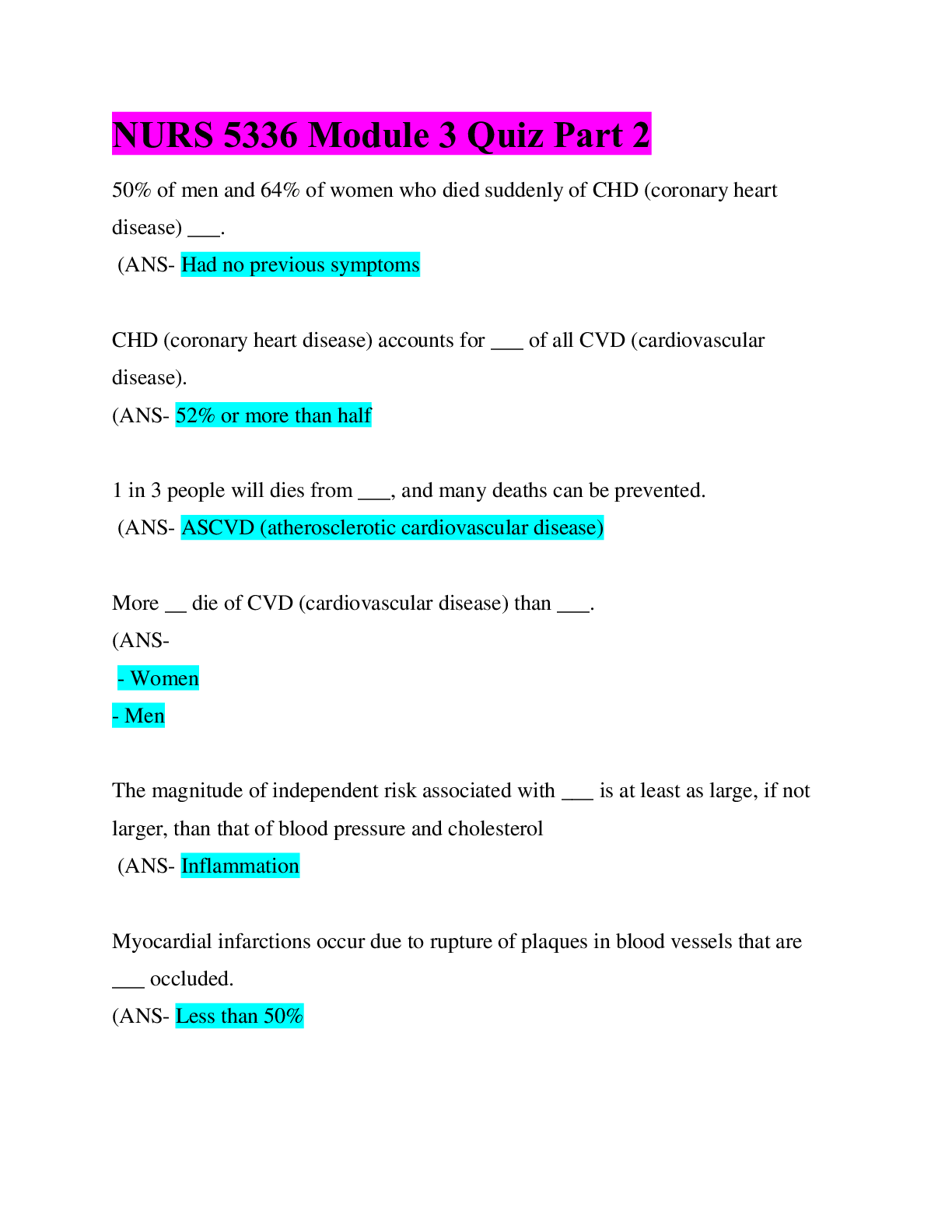
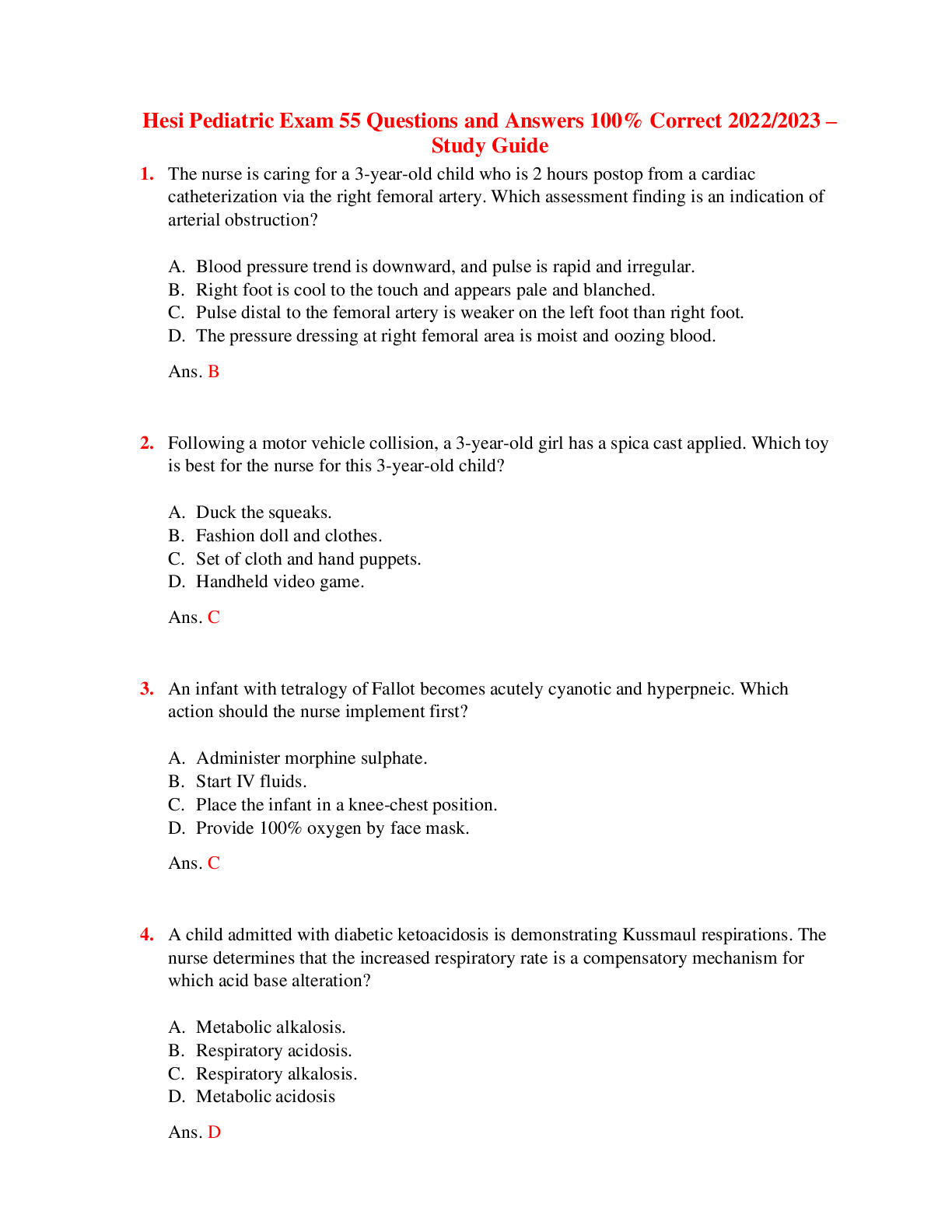
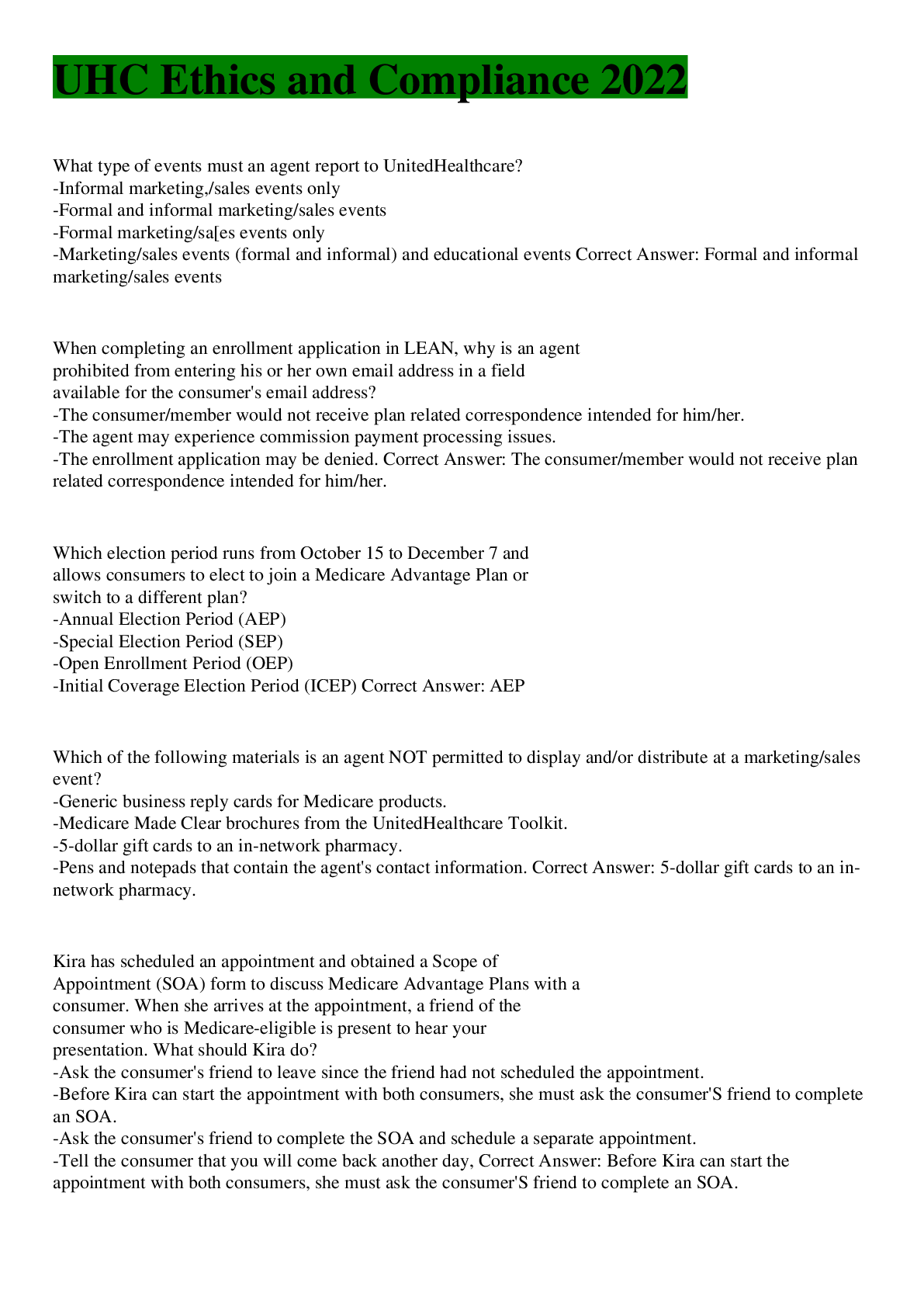
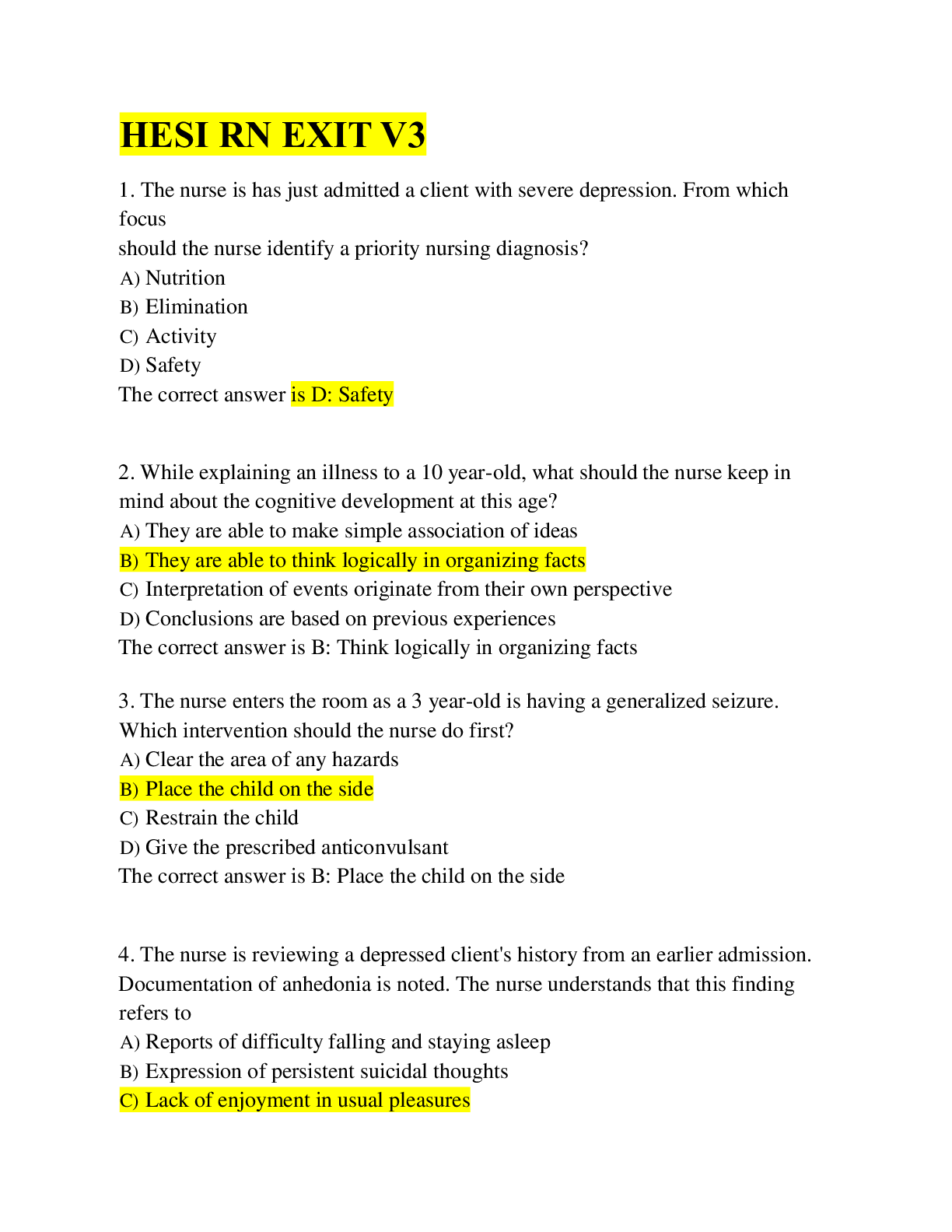
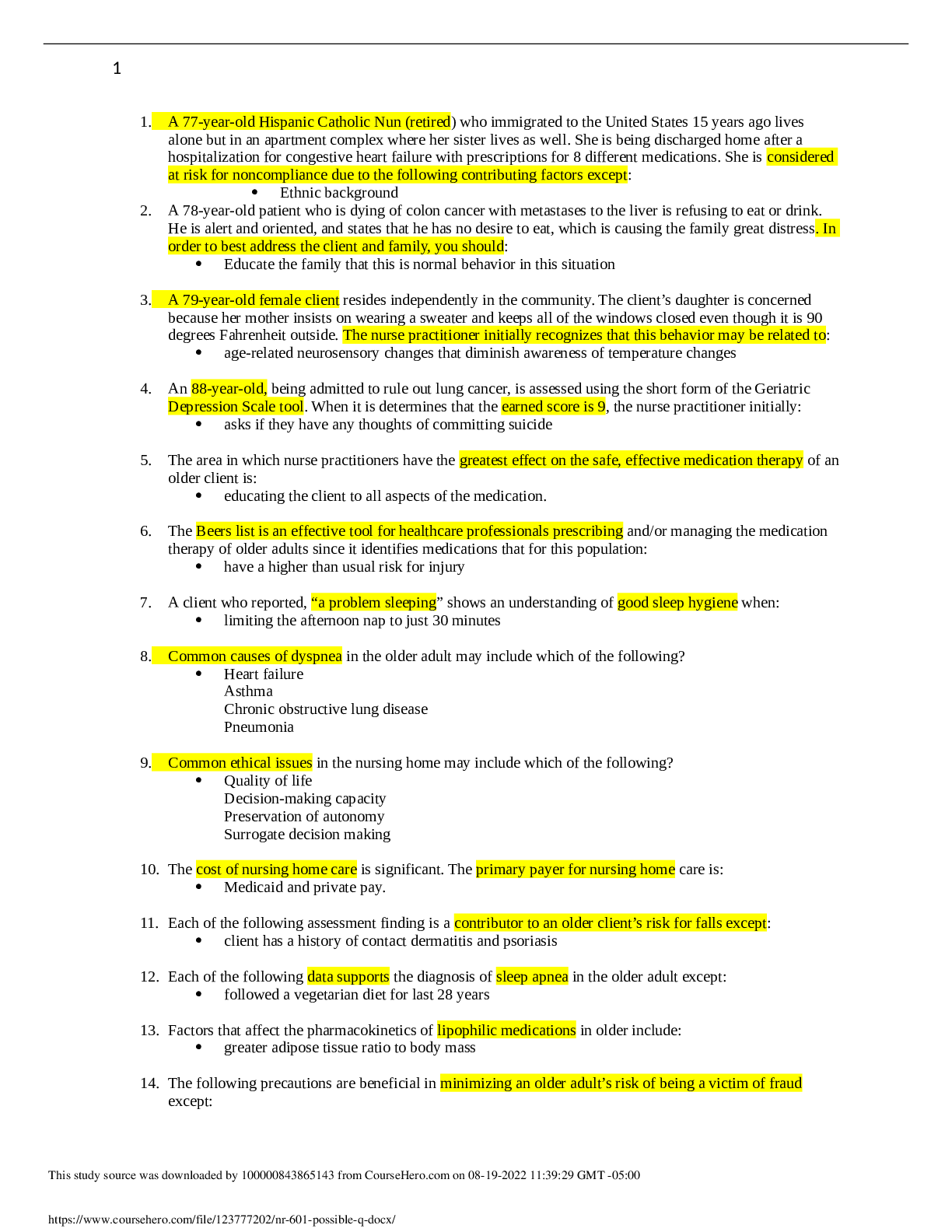
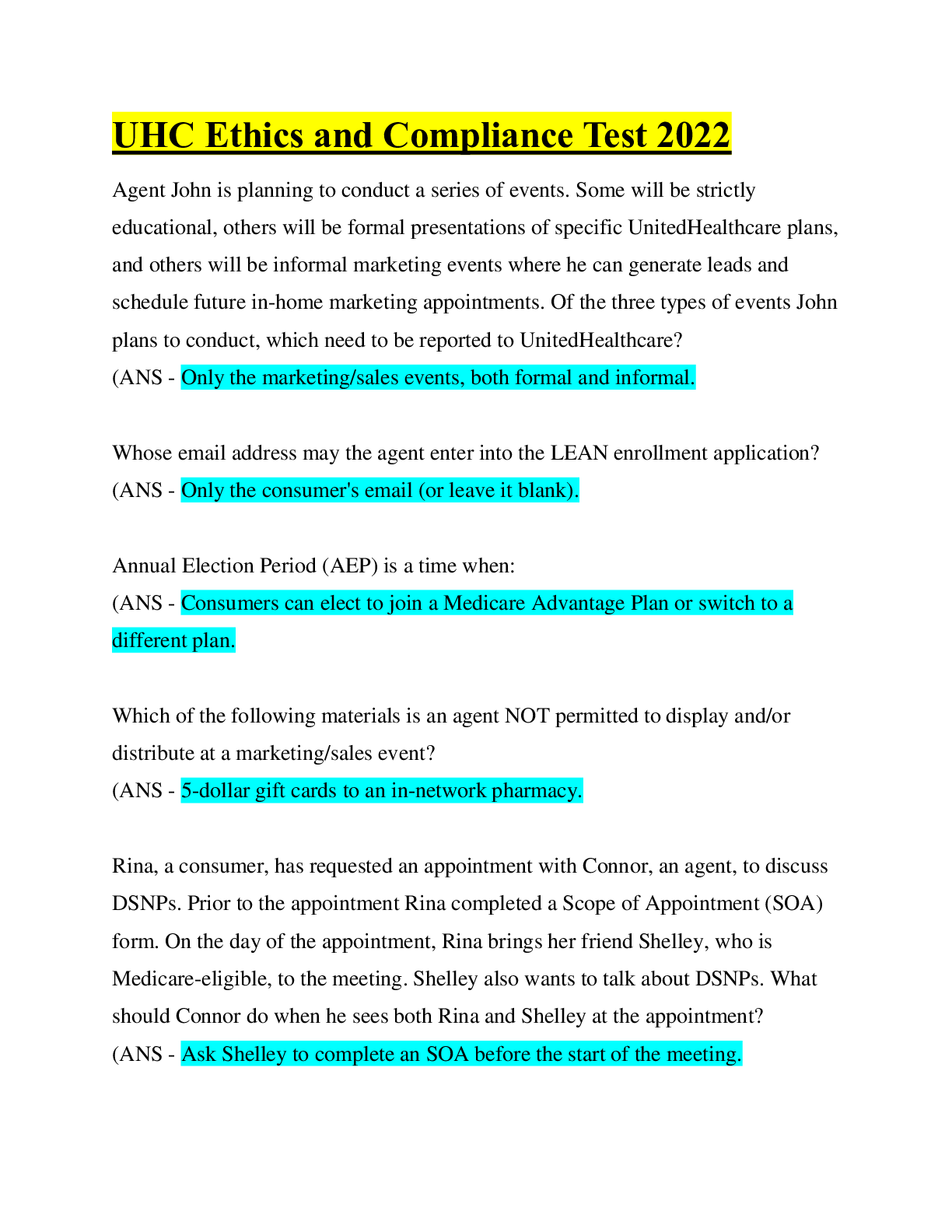
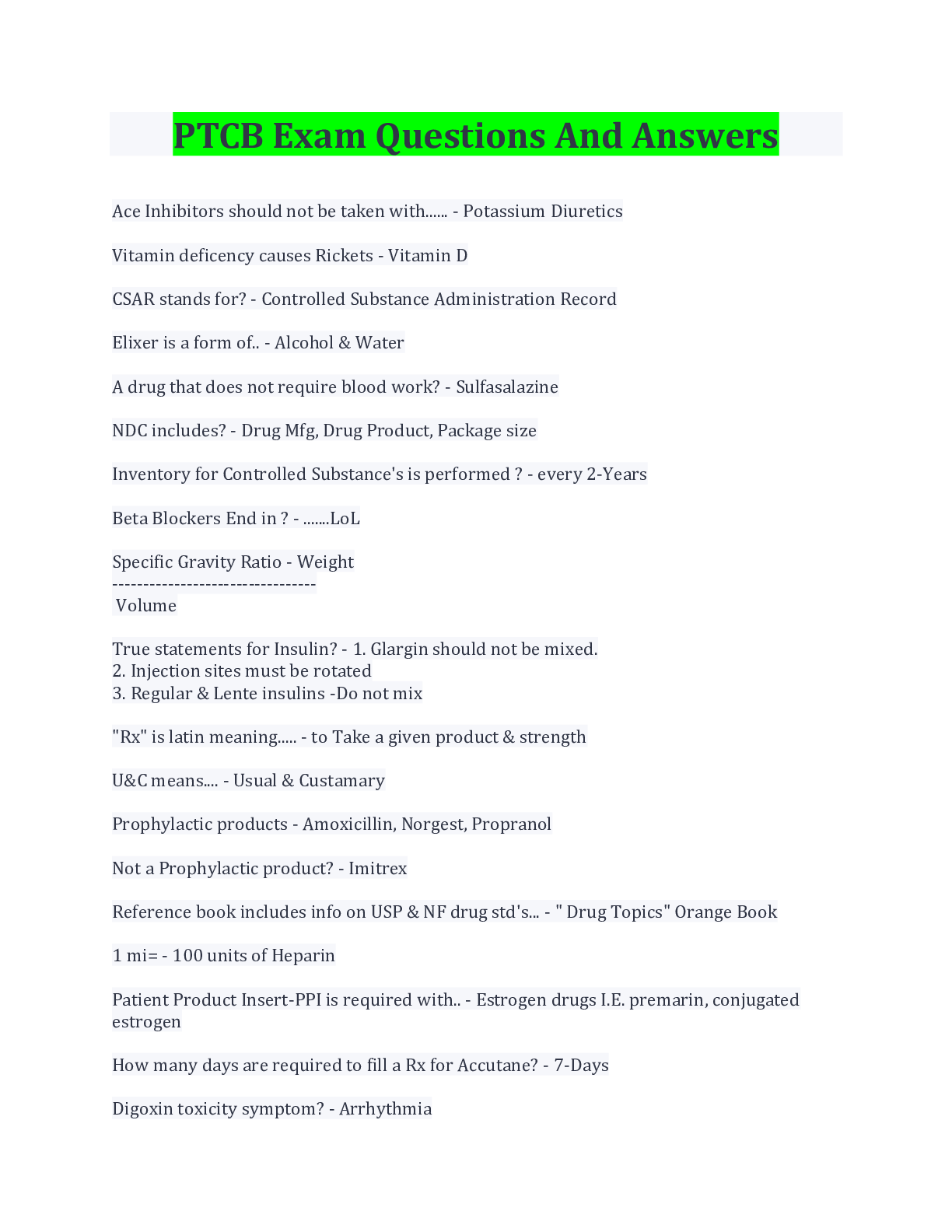
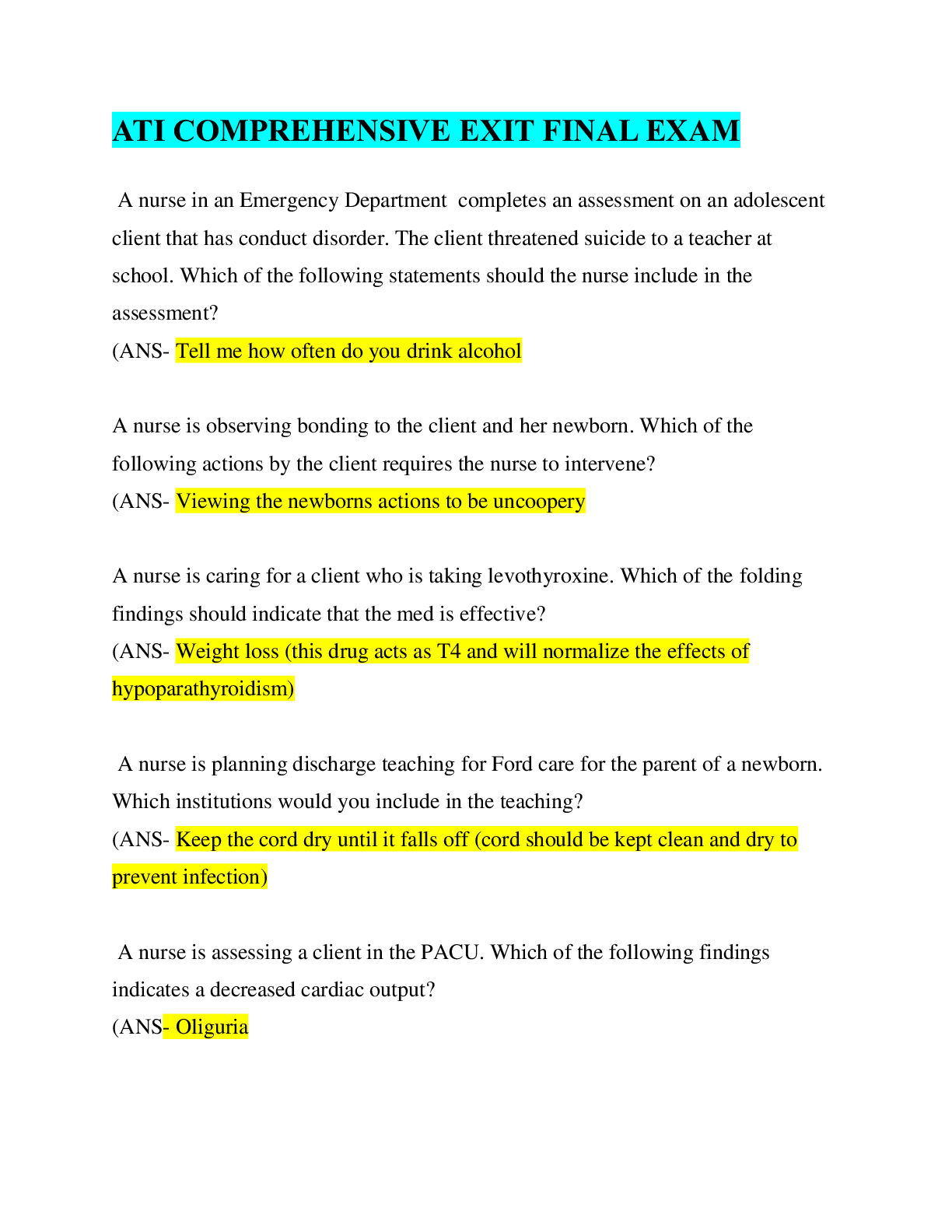
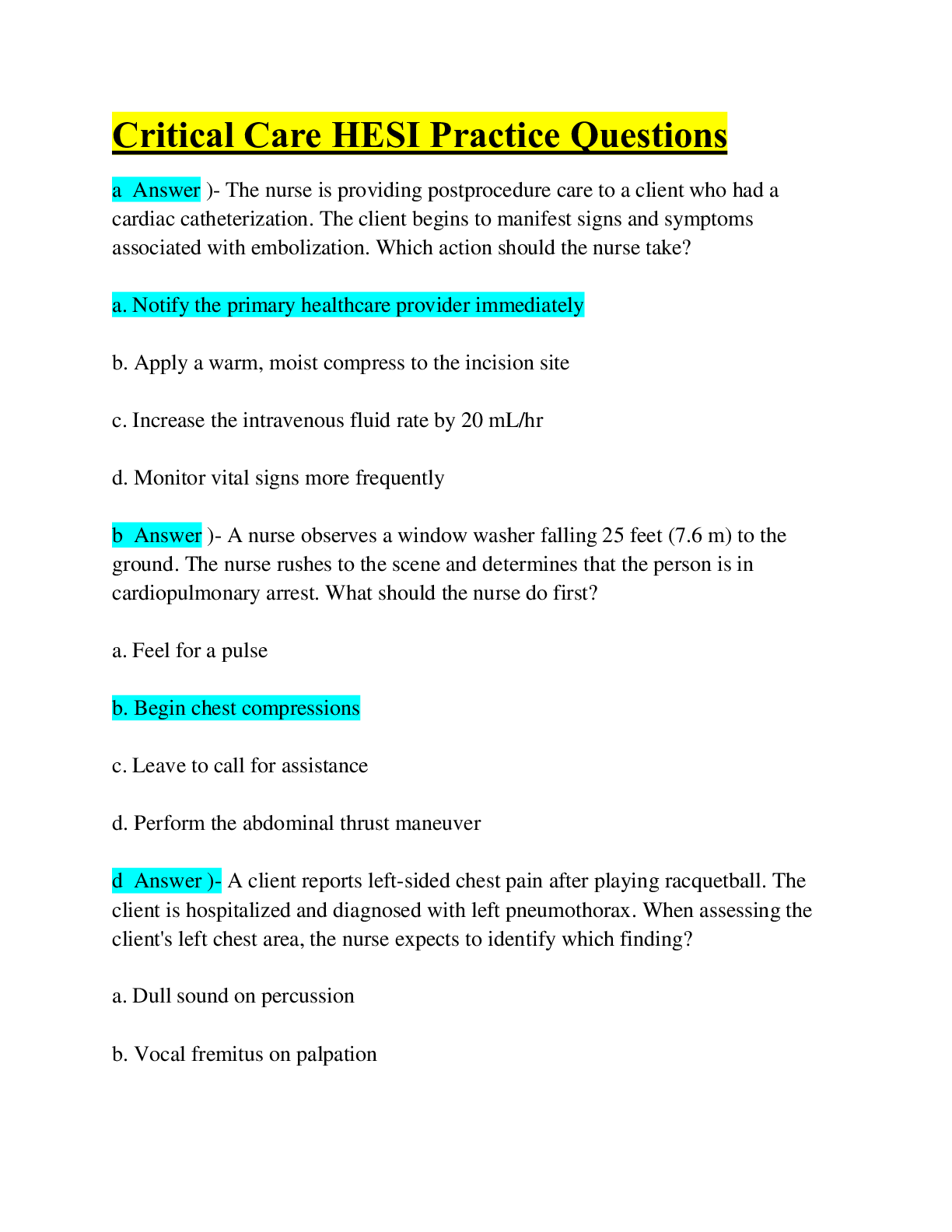


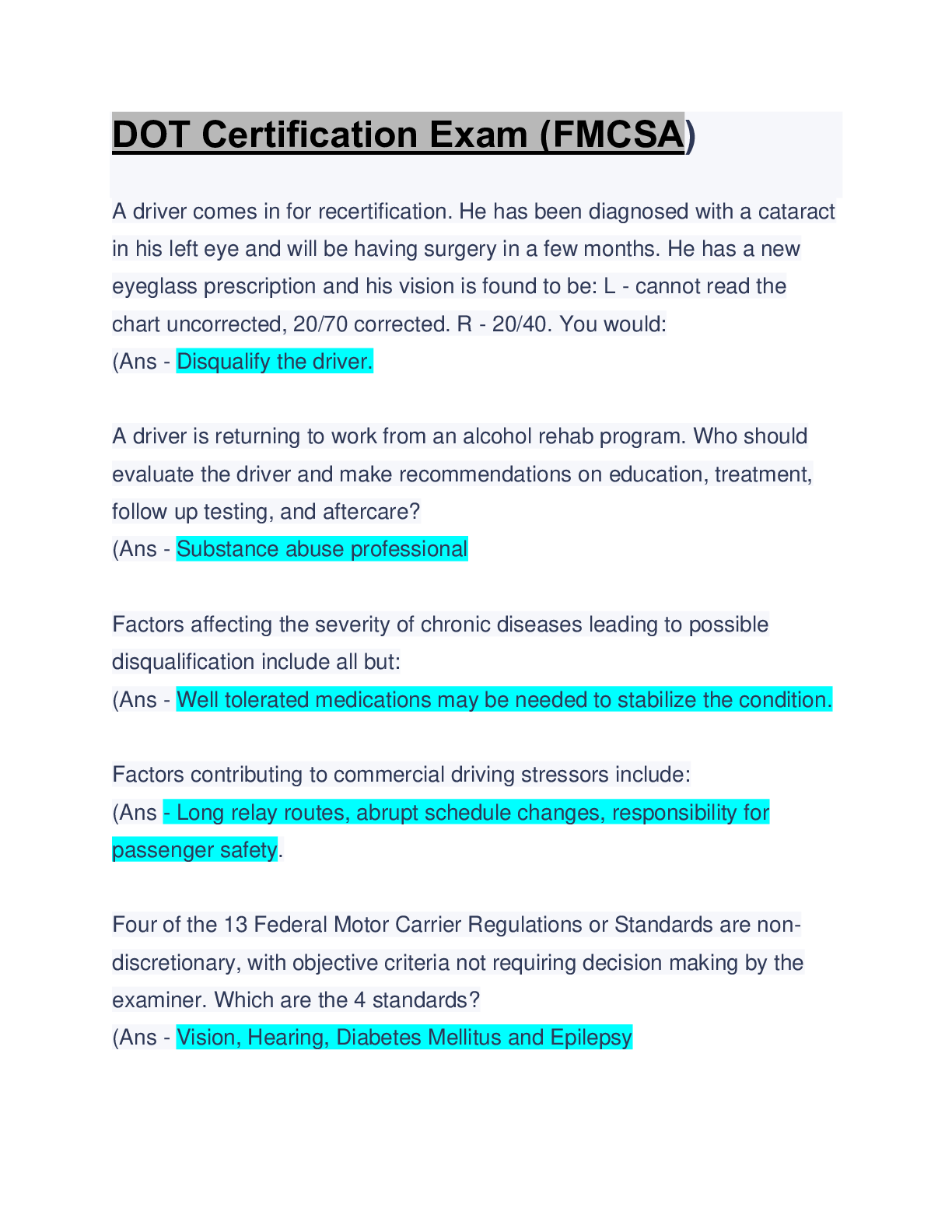
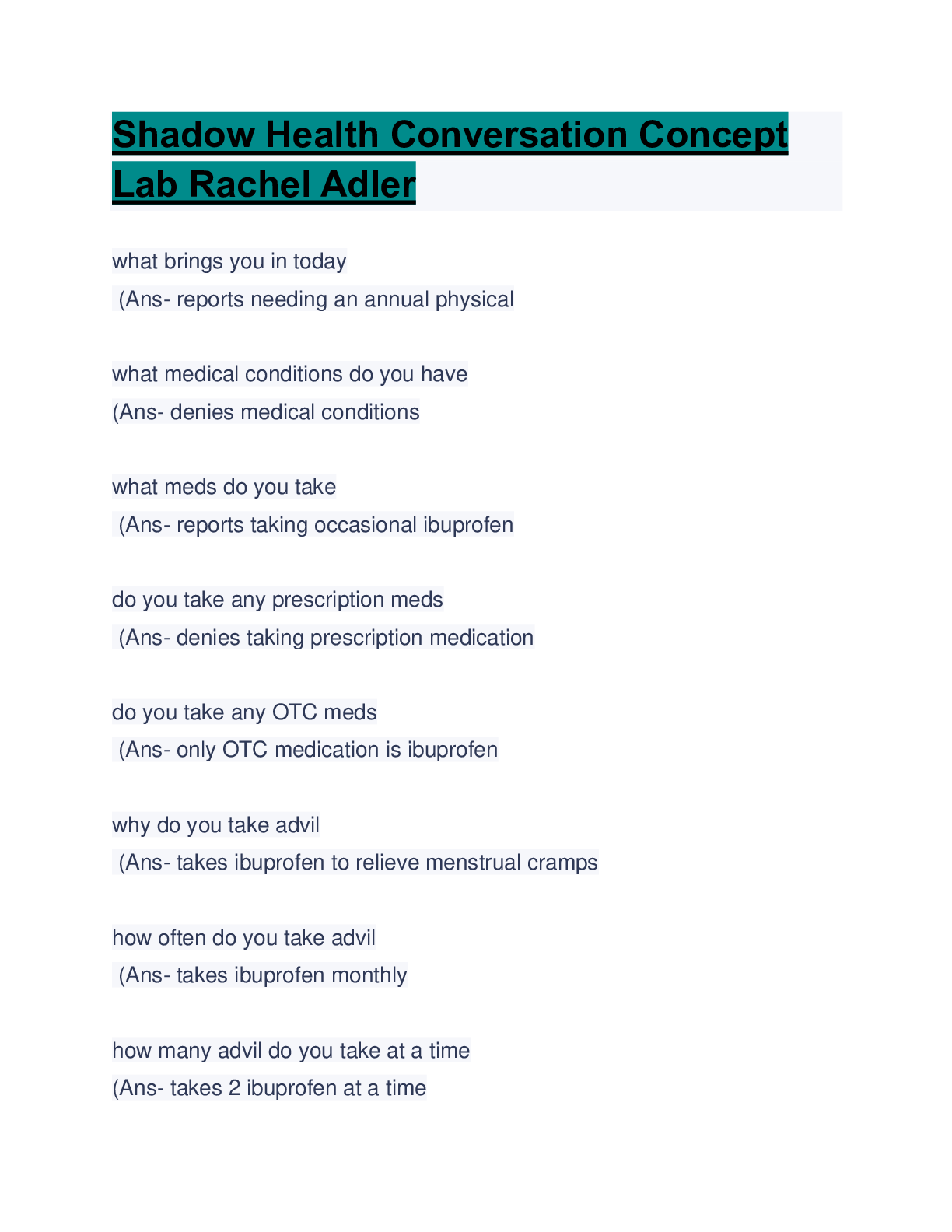
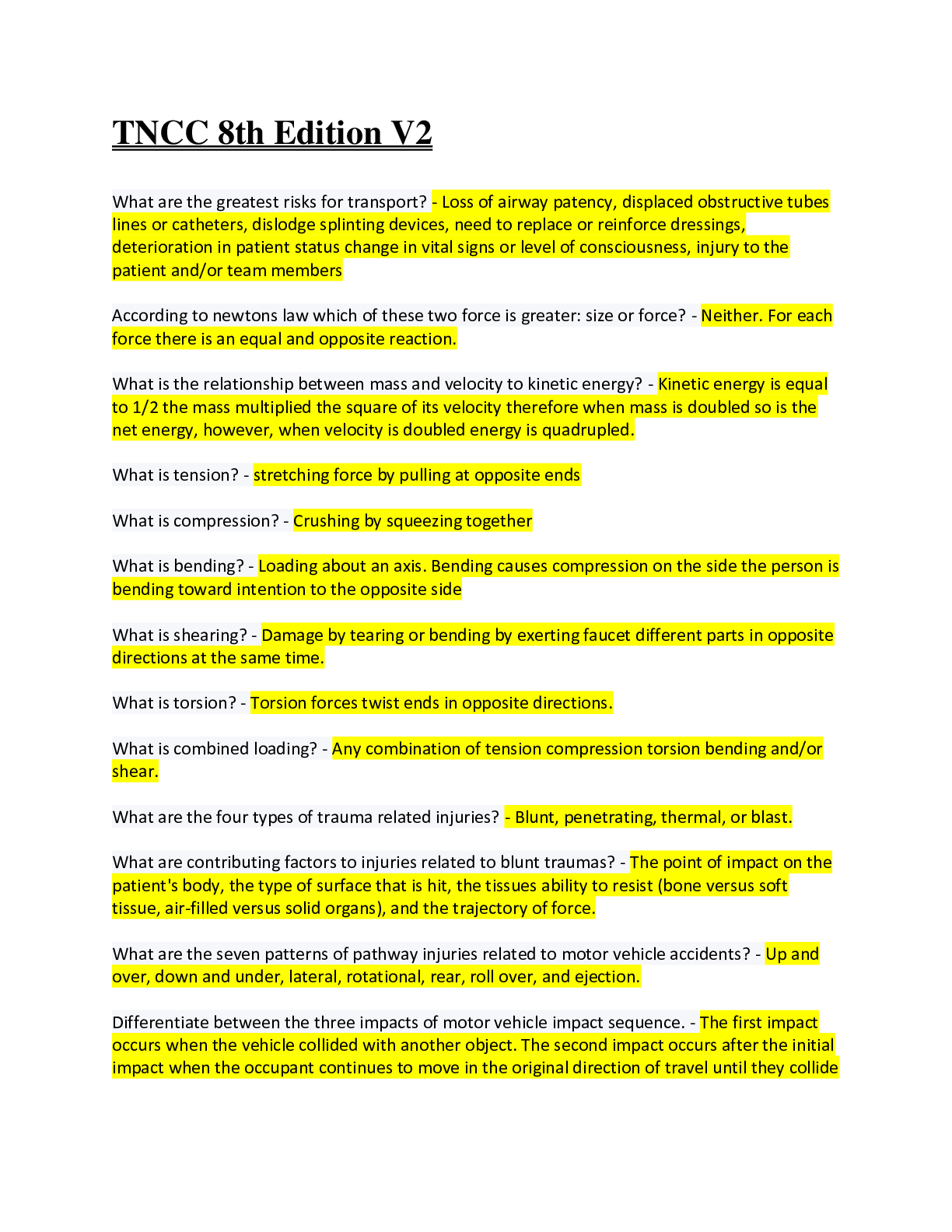
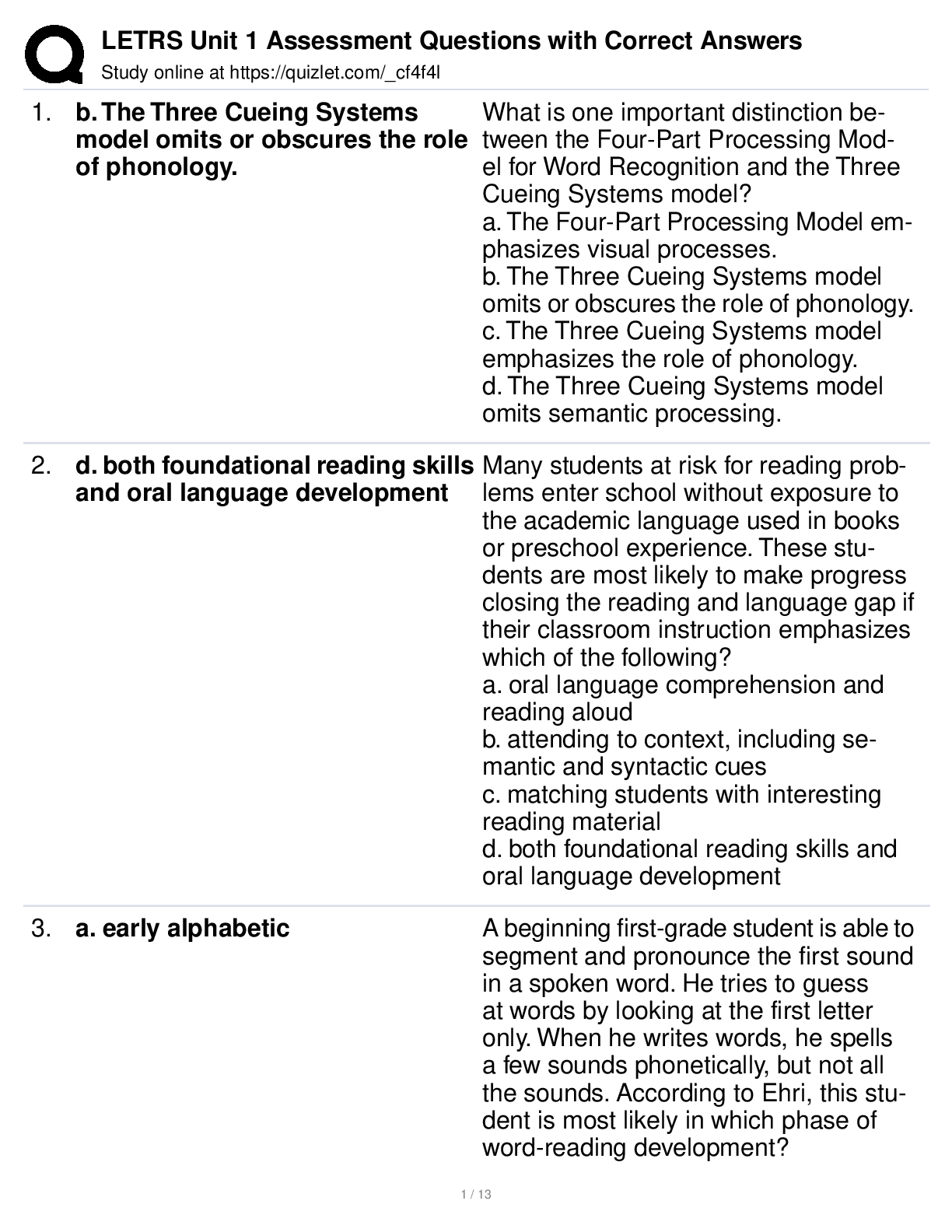
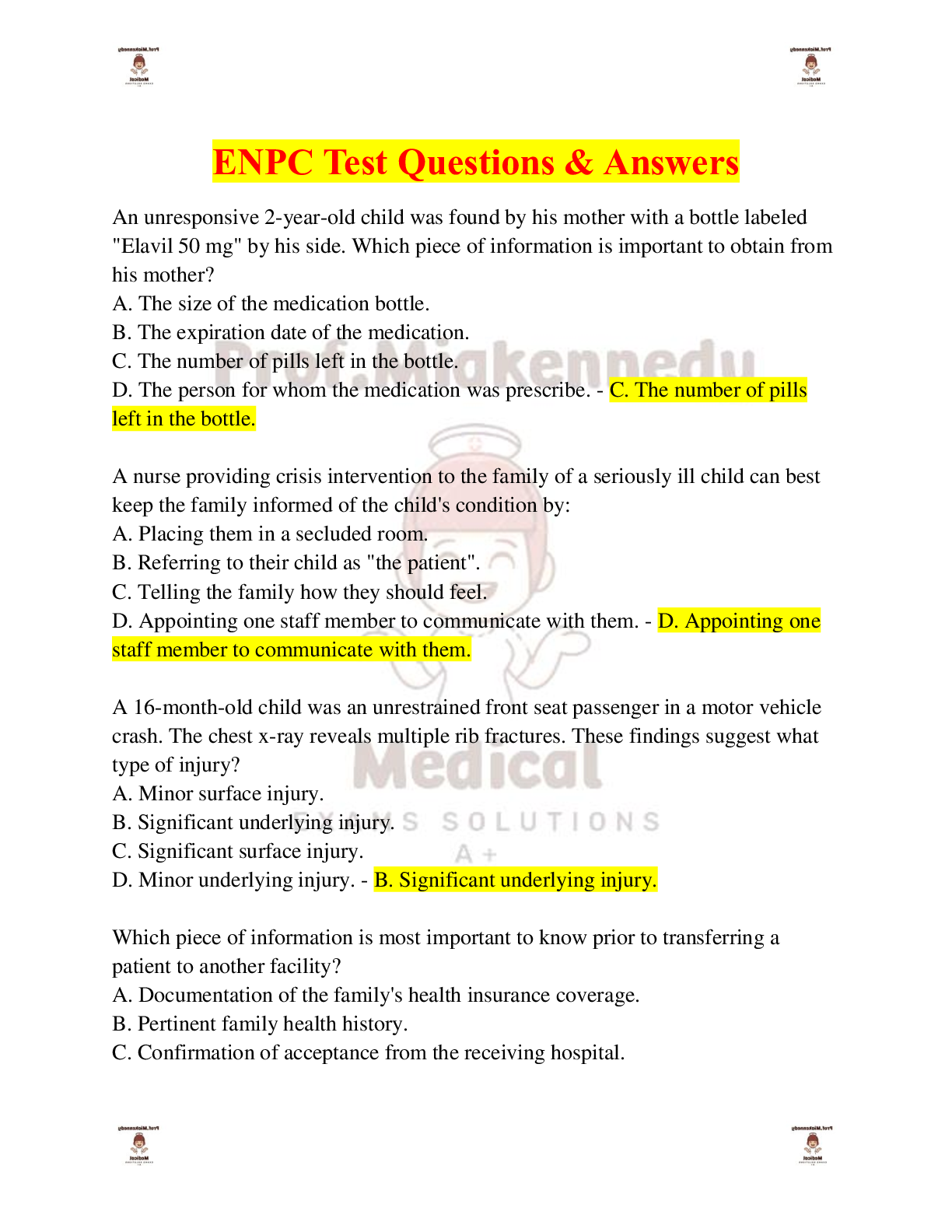
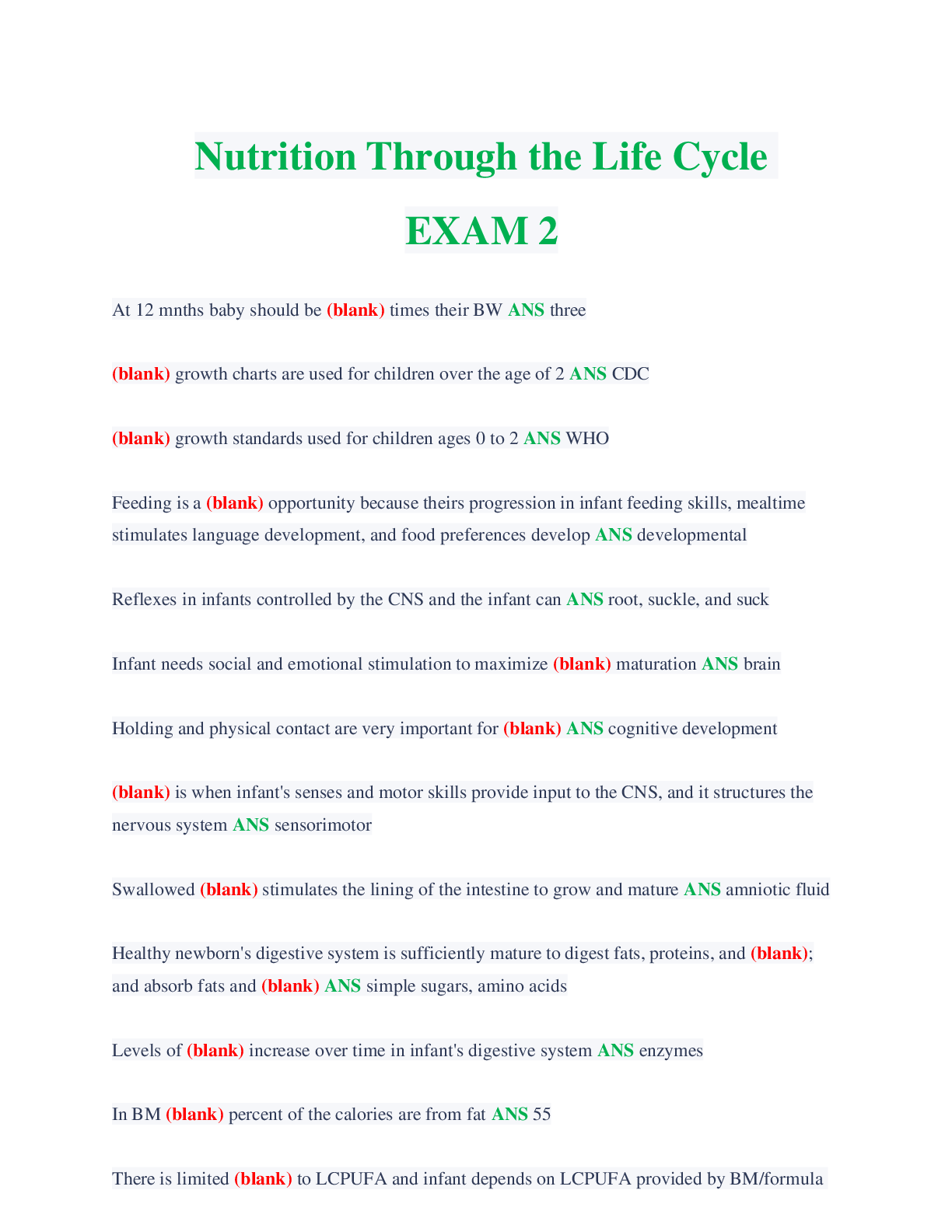
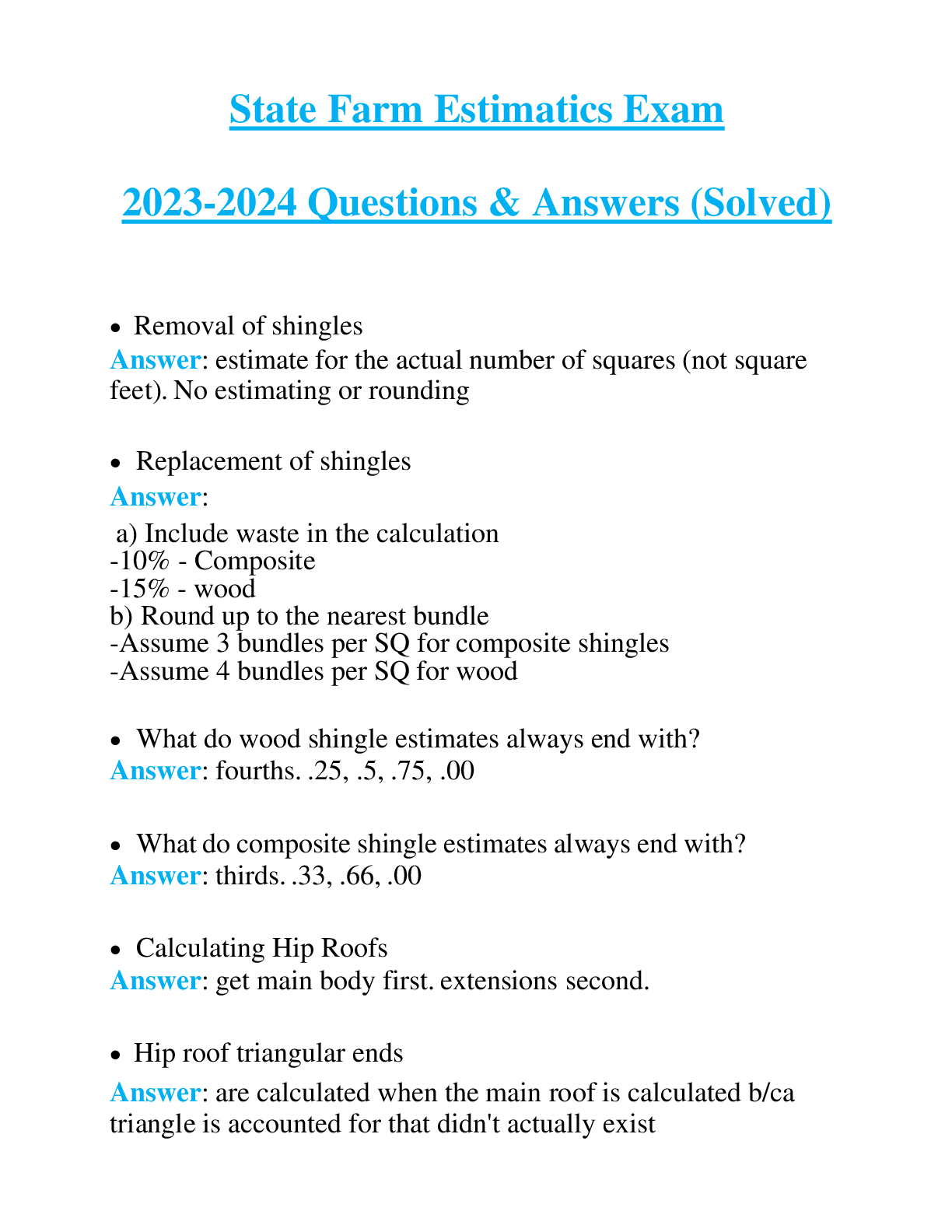
.png)
